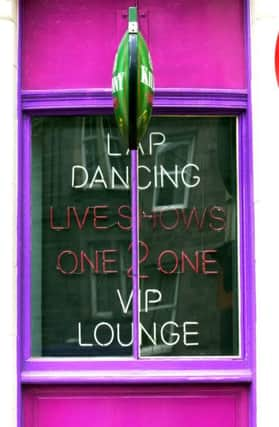Women's groups call for Scotland-wide ban on lap dancing clubs


Yesterday the government published its summary of responses to consultation into regulating strip clubs and lap dancing bars.
Ministers have proposed a licensing scheme that will give individual local authorities the power to set the number of licences at nil. But the Violence Against Women Partnerships (VAWP) say they are disappointed the government has not gone further and introduced a ban across the country.
Advertisement
Hide AdAdvertisement
Hide AdYesterday’s document said VAWPs wanted Scotland to follow Iceland’s example in banning sexual entertainment venues across the board.
VAWPs have been set up as multi-agency mechanism to deliver on Equally Safe, Scotland’s strategy for preventing and eradicating violence against women and girls.
The document said VAWP expressed “disappointment that there was no national decision taken to set the number of sexual entertainment venues at nil (in line with that adopted in Iceland)”.
They also suggested the Scottish Government should work with the Convention of Scottish Local Authorities (Cosla) to ensure each council passed a resolution to ensure there were zero venues.
Cosla said that it supported the new licensing regime but also backed the Sottish Government’s Equally Safe campaign defined violence against women as including lap dancing and stripping as well as prostitution and human trafficking.
But sexual entertainment operators expressed concern that local authorities could pursue an effective ban in their areas.
They said the legislation, which is part of the Air Weapons and Licensing (Scotland) Act, was a “threat” to livelihoods.
They were also concerned that the legislation did not provide for “grandfather rights”, whereby old rules can apply to existing cases, so that venues already in operation could continue doing business.